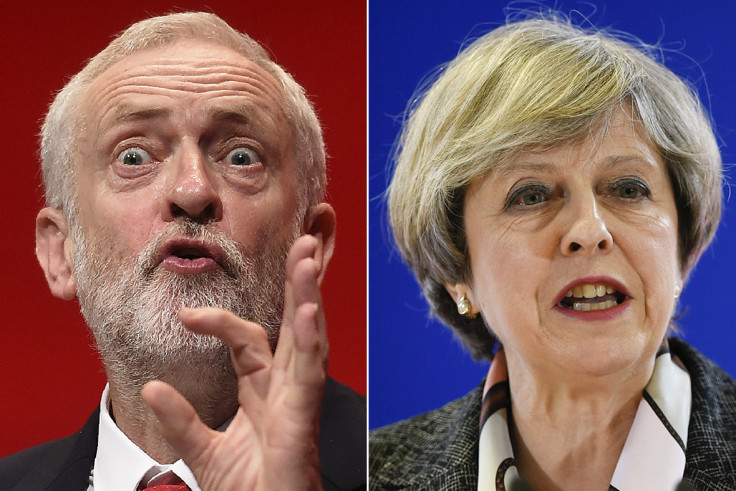The 5 issues from PMQs that will define the 2017 general election
It was a loud, raucous PMQs but, behind the pantomime, there were clear signs as to how the results will swing.

PMQs is a chance to hold the prime minister to account every week, but this week's edition acted as a small flavour of what to expect between now and the snap general election announced by Theresa May on Tuesday (18 April).
With little time for preparation and long running debates, the issues that will define this election were thrust centre stage in PMQs.
The lady's not for debating
Theresa May has made it clear that she won't be taking part in any televised debate between now and the general election, in similar fashion to how David Cameron avoided debates in the run up to the EU referendum.
The prime minister was asked by both Jeremy Corbyn and the Lib Dem leader Tim Farron if she was 'running scared' in her refusal to appear alongside them on television.
But May has said that the weekly debating forum in PMQs is how she can be held accountable and that she wants a campaign on the streets, going door to door.
The closer to the election we get, the less important this issue will be but – in the initial stages – it is an easy stick to beat the prime minister with.
'Now is not the time'
Those were the words said by Theresa May when asked by the Scottish First Minister to hold a second independence referendum.
SNP MPs are trying to turn those words against her after she announced the snap election.
North of the border, one issue will be discussed – a second referendum – and it will define Scotland during, and after, the referendum.
Domestic debates
In the run up to the 2015 election, debates were over the economy, migration, the NHS and welfare. In June 2017, just one subject will be on voters' lips... Brexit.
But domestic issues will still play a key role in the weeks ahead.
Jeremy Corbyn tried to set some of these topics up as well as many MPs on both sides of the House of Commons.
The deficit and the state of the economy was a route which Corbyn tried to manoeuvre, but remains an area where Labour are viewed as vulnerable – following the 2008 crash.
Education and the NHS are the two biggest issues that will form the domestic discussions. The Fairer Funding programme for schools has been welcomed by some MPs and criticised by others, while the NHS has endured one of, if not the, roughest winters in its history.
A winning slogan
Getting a message across to voters is what helps win elections and it was clear, early on, which way Theresa May and Jeremy Corbyn were pushing.
Mrs May spoke of the need to have a "strong economy" a "strong defence" and a "strong leader."
The leadership angle is an area which Mr Corbyn has been weak and could be the best way to shore up a Conservative victory in a few weeks' time.
Mr Corbyn however pushed on equality and broken promises – these included the repeated targets to lower the deficit and the promise to not hold a snap election.
Together these two strands will be chiming hard in voters' minds.
Ask members of the public and they probably won't remember a key phrase from Ed Miliband and the Labour party from the 2015 campaign, but what can be remembered is the idea of a 'long term economic plan' which the Conservatives pushed hard for.
Rough rhetoric
The tone of the debate is going to get possibly messy in the days and weeks to come.
Brexit has highlighted the divisions in the country, and there are multiple other divisions to factor in too.
The polls suggest a big win for the Tories, but nothing is assured. This is a sprint election that will fought fiercely on all sides whether the public have the appetite for it or not.
© Copyright IBTimes 2025. All rights reserved.






















